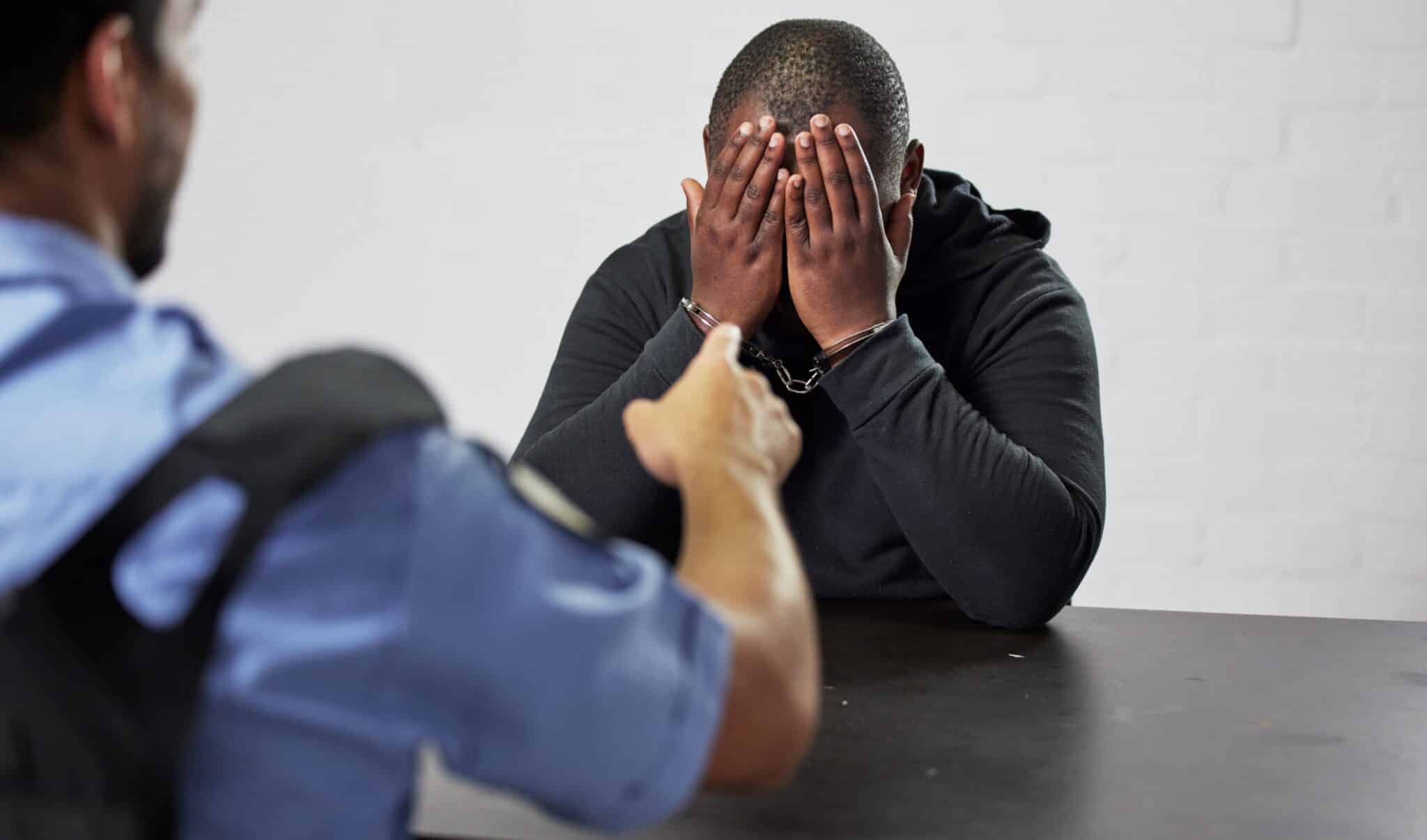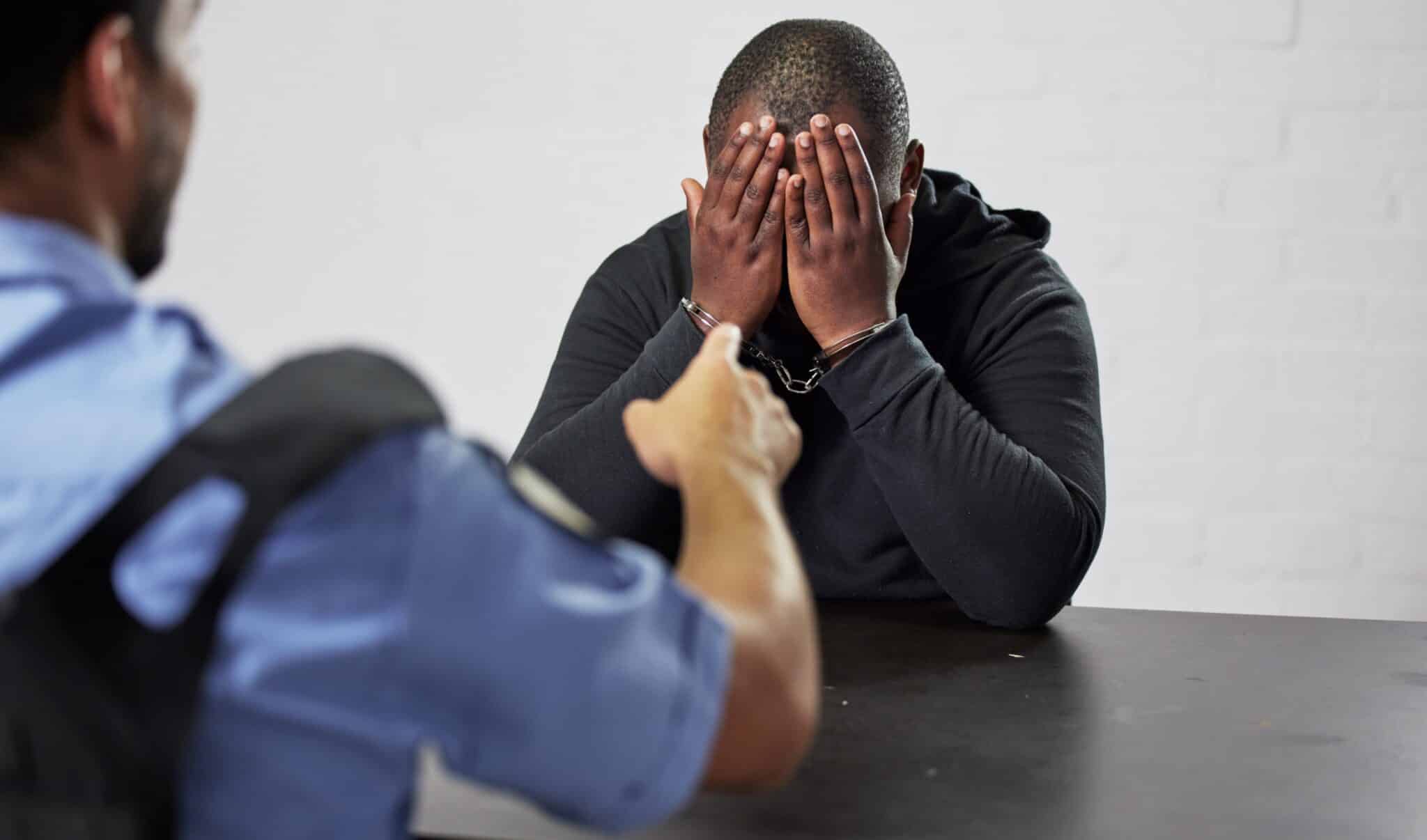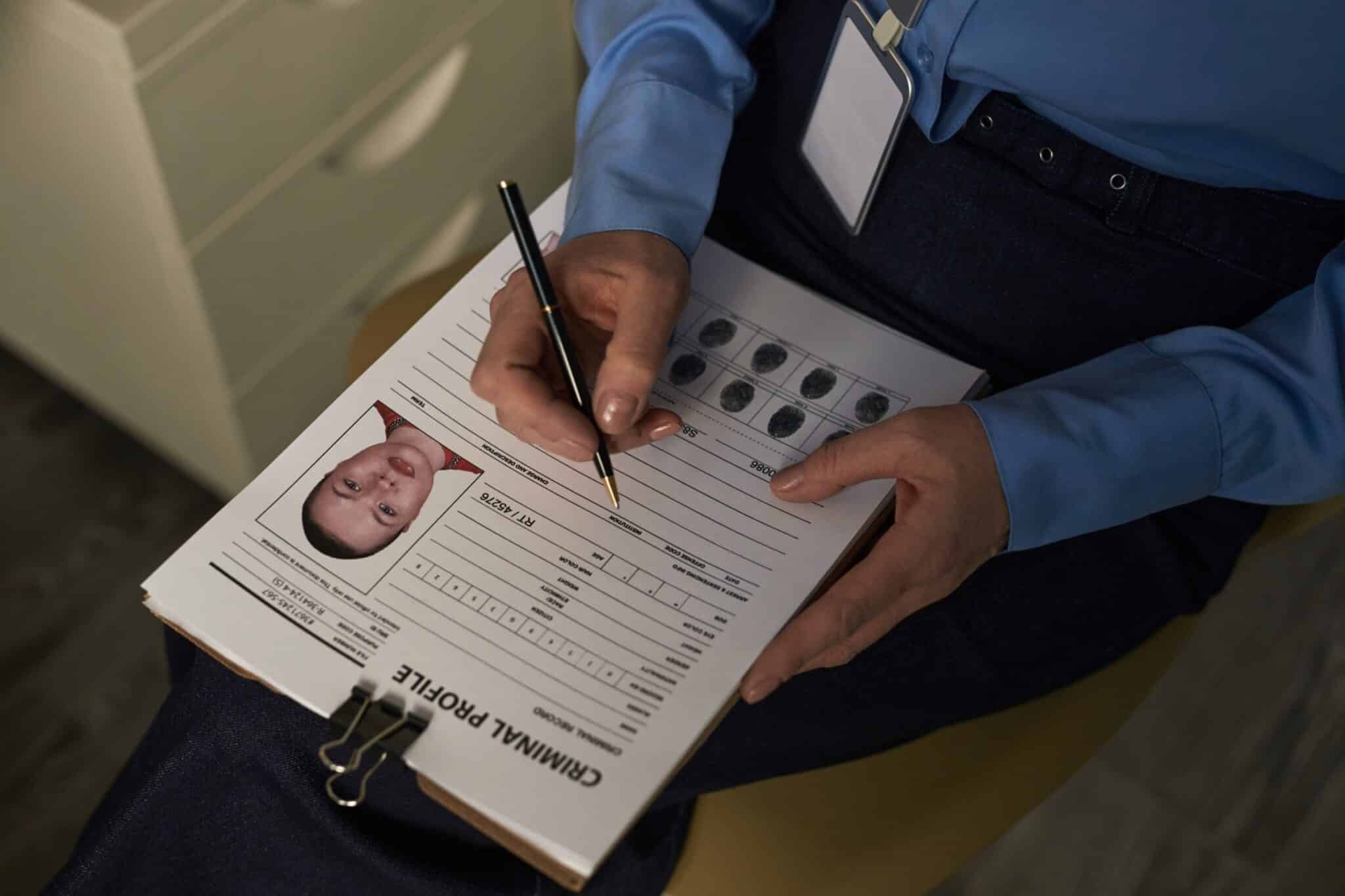WHAT HAPPENS IF YOU REFUSE TO TALK TO POLICE DURING AN INVESTIGATION?

When police approach you during an investigation, it’s natural to feel nervous — even if you’ve done nothing wrong. Many people think they can “clear things up” by answering a few questions. But that can be a serious mistake.
In Missouri, you have the legal right to remain silent, and refusing to speak to police is often the smartest move you can make. At KC Defense Counsel, we want you to understand what happens when you refuse to talk to police during an investigation and why having an experienced Kansas City criminal defense attorney is your best protection.
IT IS YOUR CONSTITUTIONAL RIGHT TO REMAIN SILENT
Under the Fifth Amendment of the U.S. Constitution, every person has the right not to incriminate themselves. That means you cannot be forced to answer police questions that could be used against you.
Missouri law enforcement officers are trained to gather evidence — not to protect your innocence. Even innocent statements can be misinterpreted, twisted, or taken out of context.
That’s why lawyers often say: “The less you say, the better.”
If you’re under criminal investigation in the state of Missouri and are wondering about your rights and what you should or should not say to police, don’t panic — and call KC Defense Counsel today. Our experienced Missouri criminal defense lawyers can help you understand your rights.
Let’s begin building your defense together. Call today.
WHEN YOU ARE REQUIRED TO TALK TO POLICE — AND WHEN YOU ARE NOT
You are not legally required to answer police questions in most situations. However, there are a few limited exceptions:
During a Traffic Stop: You must provide your driver’s license, registration, and proof of insurance.
If You’re Being Lawfully Detained: You must provide basic identifying information (like your name).
If Under Arrest: You should provide identifying details but do not have to answer questions about the alleged crime.
Outside of these scenarios, you can politely decline to speak. The key is to do so calmly and clearly.
HOW TO ASSERT YOUR RIGHT TO REMAIN SILENT LEGALLY
You don’t need magic words, but it helps to be clear and respectful. You can say something like:
“I want to remain silent and speak with an attorney.”
After that, stop talking. Don’t argue, explain, or try to convince the officers of your innocence. Anything beyond that can undo your protection.
CAN YOU BE ARRESTED FOR REFUSING TO TALK TO AUTHORITIES?
In most cases, no — you cannot be arrested simply for refusing to answer questions. Police may pressure you, act frustrated, or even try to make you feel guilty.
They might say things like:
“If you’re innocent, why won’t you talk to us?”
“This is your chance to tell your side.”
“We just want to clear this up.”
Don’t take the bait. These are investigative tactics. Unless police have probable cause to arrest you for a crime, they can’t legally detain or charge you just because you chose to stay silent.
WHY TALKING CAN HURT YOUR CASE
Even a short, innocent-sounding conversation can backfire. Here’s why:
- Police write detailed reports — your words can be misquoted or misunderstood.
- Investigators might compare your statements later and claim you were inconsistent.
- Once you’ve spoken, your lawyer can’t “unsay” anything.
Many convictions start with voluntary statements made before an attorney was involved. Don’t let that happen to you.
What to Do If Police Keep Pushing for Answers: If police continue asking questions after you’ve invoked your right to remain silent, they are violating your rights. Do not argue. Simply restate your position:
“I’ve said I want to remain silent. I’d like to speak with my attorney.”
Then stop responding entirely.
If officers arrest you after that, remain calm. Do not resist, argue, or make further statements — even casual ones like “this is a mistake.” Those can still be used against you.
WHY YOU NEED A SKILLED MISSOURI CRIMINAL DEFENSE LAWYER
Police have one goal: to collect evidence. A defense attorney’s goal is to protect you. If you’re being investigated, even if you haven’t been charged, having an affordable Kansas City criminal defense lawyer can:
- Communicate with police on your behalf.
- Prevent you from accidentally incriminating yourself.
- Protect your constitutional rights.
- Intervene before formal charges are filed.
In many cases, early legal intervention can prevent a bad situation from turning into an arrest.
At KC Defense Counsel, we believe that everyone deserves a strong defense. Whether you’re facing a misdemeanor, felony, or federal charge, our knowledgeable Kansas City criminal defense attorneys are here to protect your rights and your future. We handle every case personally, giving you the focused attention you deserve. Our team understands the Missouri justice system and knows how to navigate it effectively to achieve the best possible outcome. From pre-trial negotiations to jury trials, we fight hard at every stage.
Don’t wait — contact KC Defense Counsel today for a free case evaluation. With our experienced Kansas City defense lawyers on your side, you can face your charges with confidence and start moving forward.
CALL KC DEFENSE COUNSEL TODAY
You do have the right to remain silent under the Fifth Amendment — and you are not required to talk to police unless you’re providing identification. Just remember, no matter what, never argue, lie, or try to explain — politely assert your right and stop talking.
Police cannot legally arrest you just for refusing to answer questions. Always contact a Kansas City criminal defense lawyer before speaking with investigators.
At KC Defense Counsel, we’ve helped countless clients in Kansas City and across Missouri protect their rights during police investigations. Whether you’re under suspicion or already charged, we’ll stand between you and law enforcement to ensure your rights are respected.
If police want to “ask you a few questions,” stop and protect yourself. Call KC Defense Counsel today for a free, confidential case evaluation with an experienced Kansas City criminal defense attorney.
Cities we serve: Adrian, Archie, Bates City, Belton, Blue Springs, Buckner, Butler, Cameron, Claycomo, Cleveland, Drexel, Fairview, Ferrelview, Gladstone, Grain Valley, Grandview, Greenwood, Houston Lake, Independence, Kansas City Missouri, Kearney, , Knob Noster, Lake Lotawana, Lake Tapawingo, Lake Waukomis, Lake Winnebago, Lawson, Lee’s Summit, Liberty, North Kansas City, Oak Grove, Oakview, Parkville, Peculiar,, Platte City, Platte Woods, Plattsburg, Pleasant Hill, Raymore, Raytown, Riverside, Smithville, Sugar Creek, Tracy, Warrensberg, Weatherby Lake, and Weston.
Statewide: Missouri State Highway Patrol and Sheriff Counties we serve: Bates County, Cass County, Clay County, Jackson County, Platte County, Ray County.
Contact our experienced Kansas City criminal defense lawyers near me in Missouri and let us help begin building your defense. Let us help.
Disclaimer: This page is for informational purposes only and does not create an attorney-client relationship. Always consult qualified counsel regarding your unique situation.





Recent Comments